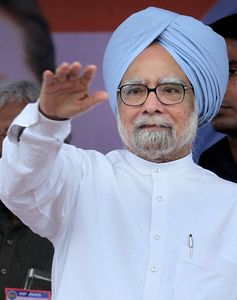Former prime minister Manmohan Singh officially bowed out of politics this week after 33 years in the Rajya Sabha. Perhaps the most recent image of Singh in public memory is of him arriving at the Parliament in a wheelchair, to cast his vote during a critical proceeding, even when the outcome was foreknown to be in favour of the treasury benches. Even Prime Minister Narendra Modi, his political opponent, complimented Singh on his sense of duty.
Singh famously argued that history would be kinder to him than contemporary media had been. And while, like many other politicians and public figures, he also had several flaws, history is already more benign and generous as it looks back at his years in government.
As a journalist, I would argue that he is the last old-style politician I know who upheld the right of a free media to be critical. In today’s hyper-polarised media environment where if you do not confirm the existing bias or leaning of a political party you are immediately characterised as the ‘enemy’, Singh never closed the doors of the Prime Minister’s Office (PMO) to those who had criticised him.
If his first term was a normal mix of praise and criticism, his second term, especially towards the end, saw him and his cabinet at the receiving end of relentless criticism, including by this columnist. With swirling corruption allegations, sharp questions about who really wielded power—Sonia Gandhi or him—and his inherent diffidence, the second term of his prime ministership was brutal from a communications perspective. Yet, it never impacted our ability in the media to meet with our sources, to be briefed on background on important national issues or indeed to ask questions of the prime minister directly.
I remember after I presented an especially critical programme on his government’s handling of the unrest in the Kashmir valley in 2010, I received a call from his office to come by and share my thoughts directly with him. The only other time a senior politician responded in a similar manner was when L.K Advani, who was deputy prime minister and home minister, invited me for a cup of tea to talk about a column I had written that he especially disagreed with.
I can’t imagine this sort of encounter happening today with any political leader in any political party.
Today, neither the opposition nor the government—for different reasons—has a healthy, even-keel relationship with the media. Both sides have favourites—depending on how they perceive your ideological slant and both sides block access if you are sharply critical.
As his former media adviser Sanjaya Baru said to me on my podcast, Manmohan Singh could have had a different legacy if he had done two things—contested the Lok Sabha elections—and resigned after Rahul Gandhi publicly undermined him on an ordinance that Gandhi thought protected corrupt politicians.
Having said that, he was still a man of rare civility, essential decency and intellectual open-mindedness. And as he steps into his political twilight he deserves at the very least that acknowledgment and respect.
editor@theweek.in


